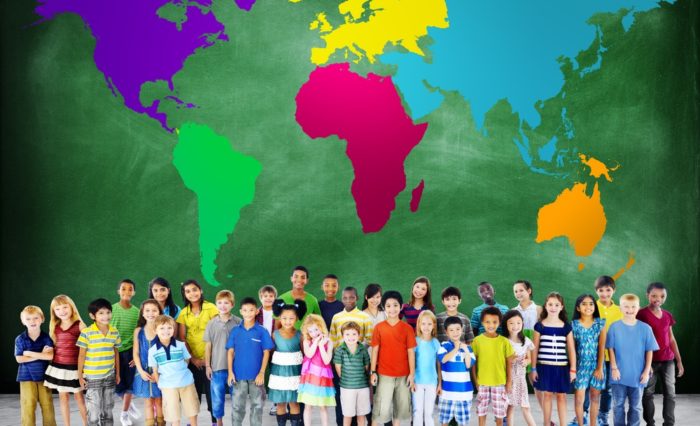The Early Years: Five Ways to Help Your Little Explorer Become a World Citizen
 I am the mother of three Puerto-Rican bred, North American girls who are also bilingual. And so my husband and I focus on developing their cultural literacy in age-appropriate ways on a regular basis. We can’t assume, though, that they will become global citizens solely by virtue of their cultural and linguistic heritage. Over the years, I’ve acquired some wisdom on this topic and will share what I’ve learned in a three-part series of articles that will help you teach your children to be global citizens at different developmental ages.
I am the mother of three Puerto-Rican bred, North American girls who are also bilingual. And so my husband and I focus on developing their cultural literacy in age-appropriate ways on a regular basis. We can’t assume, though, that they will become global citizens solely by virtue of their cultural and linguistic heritage. Over the years, I’ve acquired some wisdom on this topic and will share what I’ve learned in a three-part series of articles that will help you teach your children to be global citizens at different developmental ages.
Global citizenship is defined by a moral and ethical disposition that guides a person’s understanding of self-identity in a local and global context. It reminds them of the responsibility they have to self and others within various and different communities.
According to Audrey Osler, director of the Centre for Citizenship and Human Rights Education, and professor at The University of Leeds in England, Global Citizenship education is an imperative of our days. She affirms that “Education for living together in an interdependent world is not an optional extra, but an essential foundation.”
Capitalizing on our children’s natural interest about the world is key during the early years. Their curiosity coupled with your intentional exposure to their community and beyond will set them on the right path to developing their empathy, appreciation for world cultures, a sense of responsibility toward the world, and environmental stewardship. Here are five things you can do to nurture and expand your little explorer’s global compass.
-
Expose them to the world. Whether it is listening to satellite radio in a different language, attending bilingual story time at your local library, local international festivals in your community or art exhibits at your local museum, there is a plethora of opportunities for cultural exposure at a local level that will expand your little one’s horizons. Make it a habit to participate from new and different events as a family.
-
Volunteer. Empathy, compassion, and social responsibility are tenets of global citizenship. There are many ways you can include your little ones in local volunteering efforts that have a global impact. Civic engagement ranging from your school’s kids volunteering club, the local food cupboard or global organizations that work to improve children’s lives in developing countries like World Vision, and Samaritan’s Purse offer your little one an opportunity to understand global issues and take action at a local and age-appropriate level.
-
Learn a new language. Linguistic competency is an imperative for global citizenship, and it’s never too early to begin. Switch the channel while your little one watches cartoons, go online and discover outstanding award-winning resources for language learning such as Risas y Sonrisas , look for local language immersion community schools and sign your little ones up! Learning a language is a gift that keeps on giving as it opens the world to your children.
-
Travel. Whether you explore different ethnic enclaves in your community, plan a trip to a different state or abroad, nothing substitutes being immersed in a different language and culture. However, you can travel the world with your little one without necessarily having to get a passport. Online resources like The United Nations Cyber School Bus offer your little one the chance of experiencing the world and understanding it’s most pressing issues at home.
-
Get connected. Living in the age of technology and interconnectedness has given a twist to the old concept of Pen Pals. There are many ways to connect with people around the globe. Web pages like EPals offer a safe environment to foster intercultural communication. If you want to take it a step further, check out IEarn, where you can join a global community of little one’s tackling world issues or even join a global food show and tell group!


